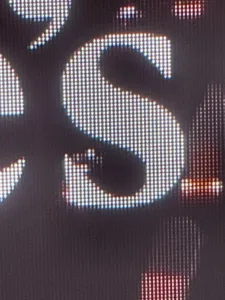Recent research presents a novel method for mass detection in MicroLED displays, leveraging regression analysis and deep learning to evaluate light output quality directly from on-wafer LED arrays.

This method involves two key stages: calibrating light output power through multi-variable regression analysis and examining MicroLED radiation profiles using 2-D convolutional neural networks (CNNs). By capturing luminescent images and employing a calibration technique that accounts for resistance variations, the approach achieves low average variation in predicted device performance.
The CNN models further enable precise identification of functioning LEDs with high accuracy and precision. This comprehensive approach addresses critical challenges in MicroLED display manufacturing, offering a scalable solution for assessing and ensuring the quality of MicroLEDs before their integration into display substrates.
Reference
Chiang, H.-Y., Chen, S.-A., Chou, J.-J., Lin, K.-H., Chen, Y.-H., Shih, C.-S., & Huang, J.-J. (2024). Chip-level mass detection for micro-LED displays based on regression analysis and deep learning. Optics Express, 32(6), 8804–8815. https://doi.org/10.1364/OE.515688

